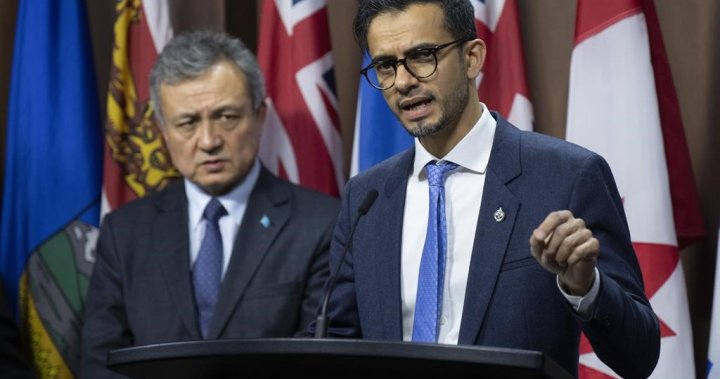
Should Canada’s notwithstanding clause exist? Liberal MP says it’s time to debate
Global News
The notwithstanding clause allows provincial and federal governments to pass laws that circumvent parts of the Charter for a period of up to five years.
A Liberal MP from Montreal says it is for the country to debate whether the notwithstanding clause should be on the books.
Sameer Zuberi’s comments come after a week where the Bloc Quebecois forced parties in the House of Commons to vote on whether they felt provinces had the legitimate right to use the constitutional power however they wanted, including pre-emptively.
Both the Liberals and federal New Democrats voted down the motion to defeat it, while the Conservatives supported the Bloc’s call.
The notwithstanding clause is a provision in the Charter of Rights and Freedoms that allows provincial and federal governments to pass laws that circumvent parts of the Charter for a period of up to five years.
While it’s not new, debate around its use has heated up in recent years as provinces such as Ontario and Quebec have invoked it pre-emptively, effectively preventing anyone from launching a legal challenge in court.
Quebec Premier Francois Legault’s government used it pre-emptively to usher in his government’s secularism law, known as Bill 21, which prohibits public servants in positions of authority from wearing religious symbols on the job.
“When you have the usage of the notwithstanding clause being enacted in such a way that it eliminates rights from people, then it calls into question the very clause itself,” Zuberi said.
Prime Minister Justin Trudeau has criticized the pre-emptive use of the provision and during a 2021 interview told The Canadian Press he shares the disdain his father, former prime minister Pierre Trudeau, had for its place in the charter. It was a demand from provinces the elder Trudeau acquiesced to during the 1982 constitutional negotiations.





















 Run 3 Space | Play Space Running Game
Run 3 Space | Play Space Running Game Traffic Jam 3D | Online Racing Game
Traffic Jam 3D | Online Racing Game Duck Hunt | Play Old Classic Game
Duck Hunt | Play Old Classic Game











